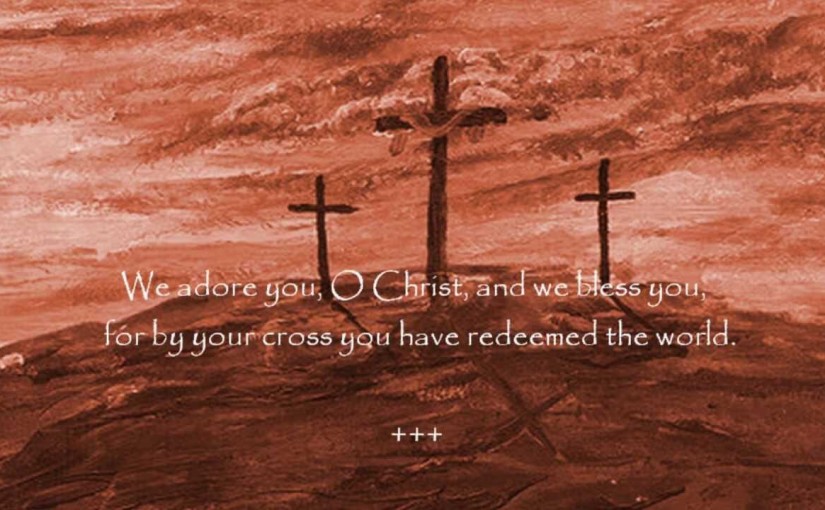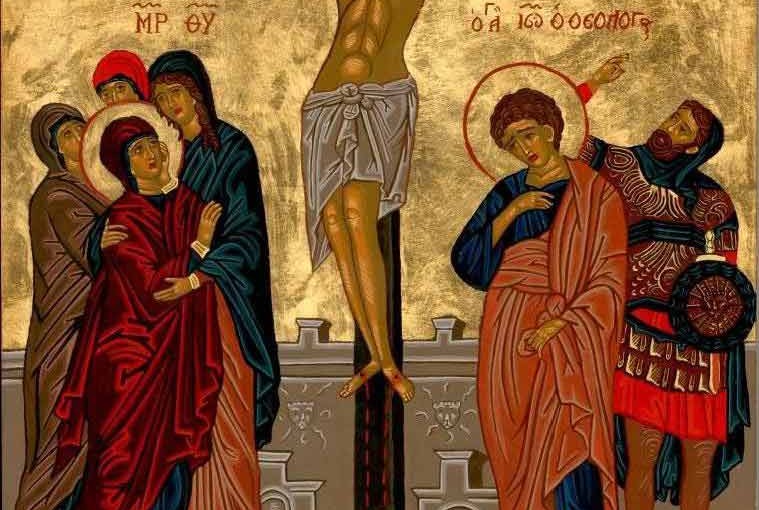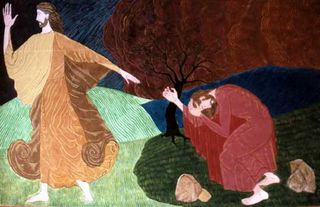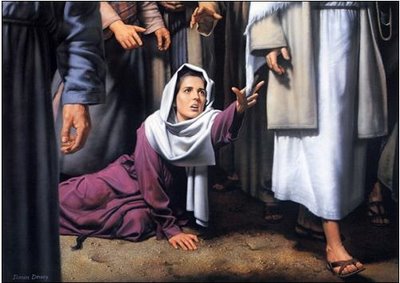This is an absolutely incredible time of year. We come together tonight (today) in a beautifully decorated and lighted church. We hear the most wonderful carols and hymns that our choir has worked on for the better part of the fall. The homes around us are decked out in their Christmas finery, brightly illuminating the darkness of the nights that come so early this time of year. In our homes, we’ve all baked up some treats that we only get to have this time of year. We gather together as families and give gifts that are tokens of our love for one another.
This is clearly a special time of year for all of us. During this time, it’s so important that we come together as a Church and take the time to reflect on the meaning behind all of this festivity. It is not, as Seinfeld would have said, some kind of generic “Festivus.” This is one of the holiest nights (days) of the year, and it is good for us to be reminded why we celebrate, or else the Christmas shopping becomes just shopping, and the cookies are just another thing we have to work off in the coming year, and the carols are nothing more than background noise for all the stress in our lives.
God didn’t want us to live that kind of bland existence. He wants us to live abundantly and to that end he has sent us the greatest gift we’ll ever get: the gift of his love poured out from the core of who God is, embodied in our own kind of flesh – his only-begotten Son, our Lord Jesus Christ, who came that we might not be mired in sin and death and blandness, but instead live the kind of incredible life that the bright lights and merry songs of this season only begin to foreshadow.
Tonight, as we gaze on the gift of Christ in our Manger, we remember that God wants to save the world. He created us in love and for love, so he greatly desired in his grand plan that we would all come back to him one day and live forever with him in the kingdom. But he knew that, steeped in sin as our world can be, fallen and flawed, as we individually can be, that we would never think to turn to him on our own. We were – and are – too caught up in things that are not God and that are not ultimately going to bring us happiness. So he knew that the only thing that he could do was to enter our history once again.
And he could have done that in any way that he pleased – he is God after all: all-powerful, all-knowing and present everywhere. John’s Gospel, though, tells us just exactly how God chose to enter our history: “And the Word became flesh and made his dwelling among us.” He chose not just to visit us, but instead to become one of us, taking upon himself all of our weaknesses, our pain, and our sorrows. He was born a baby: the all-powerful One taking on the least powerful stage of our existence. He was born to a poor family and announced to an unwed mother. The one who created the riches of the world and who himself was clothed in the splendor of the Almighty turned aside from all of it so that he could become one with his people. Because he chose to take upon himself all that we must go through and then some, he is the way to salvation for all of us.
The only way that the full brokenness of our human form could be redeemed was for Jesus to take on all of it when he came to save us. That’s why his birth was so messy, why he had to be born in a manger with all the farm animals, that’s why he never had a place to lay his head in all his life. What is amazing is that, as wretched as our earthly lives can be sometimes, God never considered himself above it all, never hesitated for a moment to take it on and fill it with grace.
God didn’t take on our form so that he could become less, he took on our form so that we could become more. So, yes, God becomes one of us and takes on all of our infirmities and weaknesses. But in doing that, we ourselves become more than we could ever be on our own. Our lowliness is filled with grace, our sadness is filled with rejoicing. That was always the plan God had for us.
So as we gaze upon and adore our Lord in the manger, maybe we can take some of the items in that beautiful snapshot and see what will come for him as he grows older. We see the shepherds, lowly men despised often by society, the marginalized ones who are the first to receive the message. We see the wise men (or rather, we will on Epiphany!), those who in the wisdom they have received from God, are ready to give everything to follow Christ. We see the angels, the messengers who urge us to take a second look at an innocent child who might not otherwise attract our attention. We see his father Joseph, who will teach him the law, as a good father would, and help him to grow in the ways of humanity, which he so completely assumed. We see his mother, who nurtured him in childhood and followed him in adulthood, becoming the first of his disciples. We see the wood of the manger, a foreshadowing of the wood of the Cross, which will be the means of our salvation. And we see and adore Christ himself, the Way, the wonder-counselor, our father forever, and prince of peace.
When we look at that manger scene with eyes of faith, we become different, knowing that Jesus paid an incredible price to bring us back to him, not just on the Cross, but even at his birth. The preface of the Eucharistic prayer which we will pray in a few moments makes this so clear: “For in the mystery of the Word made flesh a new light of your glory has shone upon the eyes of our mind, so that, as we recognize in him God made visible, we may be caught up through him in love of things invisible.”
The world’s eyes can look at that manger and see with cynicism that he’s just like us, nothing special. But our eyes of faith look at the same event and see that he’s just like us in every way but sin, and that makes him incredibly special, worthy of adoration. So if our eyes of faith have helped us to see beyond an ordinary child and to recognize our Saving God, then this Christmas has to find us sharing that vision with others. May Christmas find us open to the needs of others, willing to reconcile differences, looking for opportunities to be of service to others, eager to change our own little corner of the world for the better. Human eyes see opportunities like that as nuisances or things for other people to do. Eyes of faith see them as occasions of grace and blessing to both the receiver and the giver. May this Christmas find us seeing all of our world with eyes of faith.
On behalf of Father Steve, Father Venard and Father Dan, Deacon Frank and Deacon Al, and all of our parish staff, I wish you a most blessed and holy Christmas, today and through the entire season of Christmas. I pray that you encounter Christ in every moment of the coming year, and that you and your families are filled with every grace and blessing.






You must be logged in to post a comment.